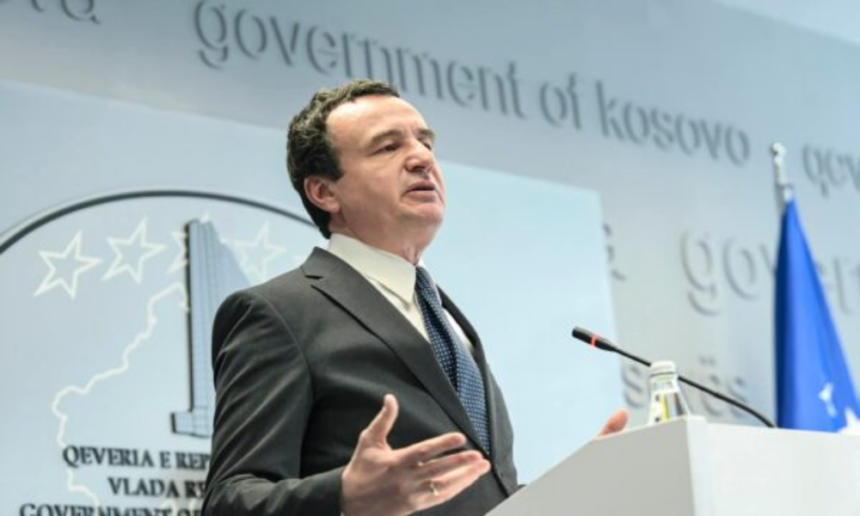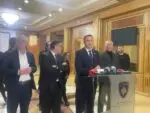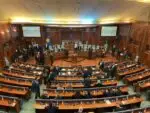The visit of Kosovo’s Prime Minister, Albin Kurti, to Sarajevo on December 5th has become a contentious issue in Bosnia and Herzegovina, with Republika Srpska authorities using it as an excuse to block key government legislation. Kurti, who arrived for a session of the non-governmental organization Krug 99, has not been officially invited by Bosnia’s state institutions, but his presence has nonetheless sparked significant political tensions, particularly in Republika Srpska.
According to Bosnia’s Radio and Television (BHRT), the announcement of Kurti’s visit quickly became a pretext for politicians from Republika Srpska to boycott important government meetings. Ministers from Republika Srpska did not attend the scheduled session of the Council of Ministers, where the focus was on adopting two crucial European Union-related laws — the Border Control Bill and the Personal Data Protection Bill. These bills, seen as essential for aligning Bosnia and Herzegovina with EU standards, have been delayed for a long time due to political divisions within the country.
The Republika Srpska ministers, using Kurti’s visit as a convenient excuse, have continued to block the progress of these bills, which are vital for Bosnia’s future. They have refused to participate in the working group sessions designed to finalize the reform agenda, hindering Bosnia’s progress in its EU integration process. While ministers from the Federation of Bosnia and Herzegovina have criticized the boycott, claiming that Republika Srpska is using Kurti’s visit as an excuse to delay reforms, the political deadlock remains unresolved.
The delay of these critical laws marks a significant setback for Bosnia and Herzegovina, as the country has struggled with political gridlock that has impeded its EU accession process. The Border Control and Personal Data Protection Bills are seen as fundamental steps toward meeting European standards, but Republika Srpska’s refusal to engage in the legislative process threatens to stall Bosnia’s path to European integration further.
As the situation unfolds, the political crisis in Bosnia and Herzegovina grows more tense, with the Republika Srpska leadership leveraging Kurti’s visit as a tool to block progress and maintain control over the country’s political direction. The question now is whether Bosnia can overcome these internal divisions to move forward with much-needed reforms.







